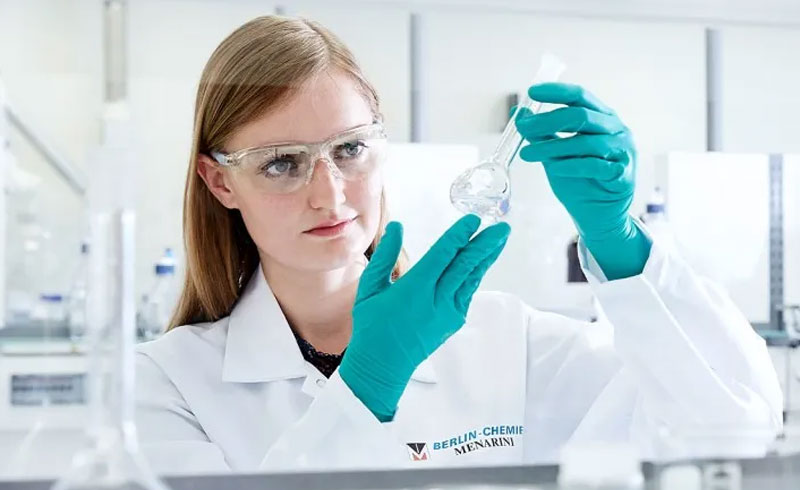
In Bologna, the most promising research in studies on tissue biopsies with low percentages of tumour cells,
on sentinel lymph nodes in patients with melanoma,
and in liquid biopsies to analyse the CTCs (circulating tumour cells) of pulmonary tumours
Bologna, 26 October 2016 – “Personalised medicine is today closer to patients thanks to the new technologies that permit increasingly accurate molecular analyses”- said Prof. Aldo Scarpa, Director of the Centre for Applied Research on Cancer ARC-Net of the University of Verona and of the Molecular Diagnostics of Tumours Unit - “We've known for years that all tumours are not one single tumour, but families of different tumours. Each of which must be treated with different medicines. To understand this diversity it is necessary to break the tumour down into its components and go on to analyse them separately. The DEPArray technology is what enables us today to isolate tumour cells also from samples of even very small biopsies and go on to study with precision the genetic characteristics to be able to choose increasingly selective and targeted medicines to hit the different 'subgroups' of cells. Thanks to the use of DEPArray we have managed to analyse tissue biopsies in which the percentage of tumour cells was less than 20%. These types of samples would normally be discarded from the analysis. Being able to analyse these samples has enabled us to identify specific mutations of the tumour and to guide the patient towards a personalised treatment”.
This was Prof. Scarpa's comment at the international conference of users of DEPArray, the technology developed by Menarini Silicon Biosystems which helps to reveal the secrets of cancer. More than 120 researchers, oncologists and pathologists met in Bologna, to discuss and compare notes on the results of their ground-breaking studies in the field of oncological research.
The DEPArray technology, developed by Menarini Silicon Biosystems, is a fundamental tool for moving towards a future of personalised medicine thanks to its ability to “dissect” the heterogeneity of tumours. In fact, starting from a tissue sample even of very few cells and of a small size, DEPArray manages to isolate and recognise the tumour cells, making it possible to achieve an in-depth understanding of their biology and to decide the most effective molecular-targeted medicine. In addition, the DEPArray technology makes it possible to isolate the “circulating tumour cells”, tumour cells that escape from the primary tumour and enter the blood to spread around the rest of the organism. These cells are extremely important above all in patients in whom it is very difficult to reach the primary tumour to obtain a tissue biopsy. In addition it has been demonstrated that they are useful in predicting the seriousness and evolution of the illness and the response to the pharmacological treatment.
The conference was an occasion for an exchange of ideas on discoveries that are making personalised medicine increasingly tangible and closer to patients. In addition, Menarini Silicon Biosystems presented its latest-generation instrument during the conference, called DEPArray NxT. The performance of the instrument has been optimised from the point of view of both engineering and software; the new instrument is compact, has sustainable costs and enables the analysis of samples in a short time frame, thus becoming more compatible with clinical application.

It is now universally accepted that cancer is a highly heterogeneous and multifactorial disease; each patient is different and also within a single tumour there are different populations of tumour cells that can present distinct genetic characteristics. Exposure to therapeutic agents can also cause changes in the tumour cells that can alter their response to pharmacological treatments and make them resistant to the therapy itself. The heterogeneity of tumours is often the cause of the failure of pharmacological therapies and of the identification of effective biomarkers.
The cutting-edge studies being carried out in the laboratory of Prof. Christoph A. Klein, director of Experimental Medicine and Therapy Research at the University of Regensburg in Germany, an authority in his field, are very close to becoming clinical applications. His research group is studying the diffusion of tumour cells from the primary tumour to “sentinel” lymph nodes in patients with melanoma. In a work published recently, the research group has shown that the presence of tumour cells disseminated in these tissues represents a biomarker of a more aggressive prognosis. The traditional methods of isolating tumour cells from lymph nodes have however a very low sensitivity, so the tumour cells manage to escape the analysis. “We have set-up a methodology that increased more than threefold the detection rate of Disseminated Cancer Cells in lymph nodes of Melanoma patients, with respect to traditional histopathology" - says Prof. Klein -“We can now translate our manual method in the clinical practice thanks to the automation in detection and isolation afforded by DEPArray technology. This represents a great step forward as it will enable routine patient stratification based on the molecular characterization of these rare tumour cells”.
The other cutting-edge field in which the DEPArray technology occupies a position of excellence is that of liquid biopsy. Liquid biopsy consists of a simple blood sample from which it is possible to isolate circulating tumour cells that have “detached” themselves from the primary tumour. These cells contain all the information necessary for understanding the genetic mutations of the tumour and for identifying molecular targets for personalised therapies. The advantage of this type of analysis is being able to follow the evolution of the illness over time with simple sampling.

Also at the User Meeting was the team of Prof. Caroline Dive, of Cancer Research UK in Manchester, in the United Kingdom, one of the most important in the world in the study of circulating tumour cells, above all in pulmonary tumours. Thanks to the DEPArray technology, the researchers have managed to isolate single circulating tumour cells from patients with small-cell lung cancer, one of the tumours with the worst prognosis and most rapid evolution. The study at the molecular level of these single cells has enabled Prof. Dive's team to understand the biology of the pulmonary tumour much more accurately and this is the basis for developing medicines to treat the illness in a more effective way. In addition, with the isolated cells, the team is now about to solve one of the greatest challenges in cancer: how tumours become resistant to medicines. “Our studies open a new horizon in patient care: starting from a blood sample we are able, thanks to the DEPArray technology, to isolate and then analyze individual circulating cancer cells and study them with absolute precision" - says Prof. Dive - "Isolating and studying circulating tumour cells from patient's blood can provide new crucial information to help monitoring the disease and understanding how it develops drug resistance. What we can do now is just to ask for a small volume of the patient's blood to address important questions about the biology of the disease and drug resistance”.
Many other projects were presented in Bologna by researchers of various nationalities on the use of the DEPArray technology for the study of other types of tumour: those in the lungs, colon-rectum, liver, kidneys, pancreas, and prostate. None of these studies is today applicable yet at the clinical level, but we are at an advanced stage and concrete benefits for the treatment of patients are now just around the corner.
















